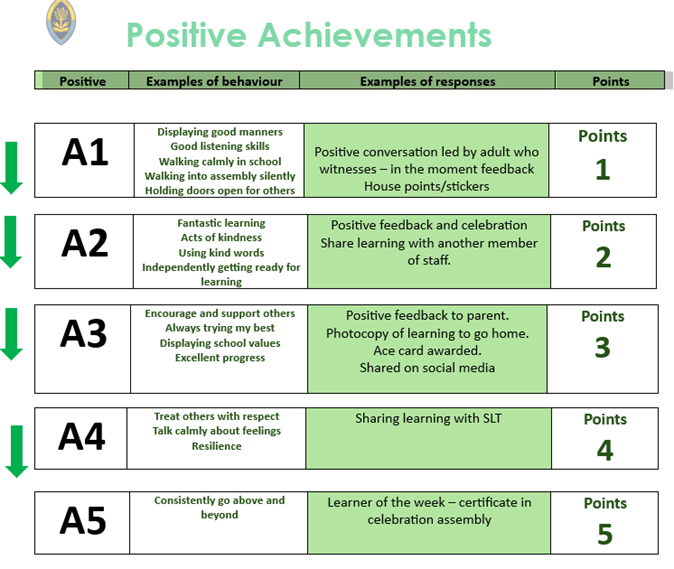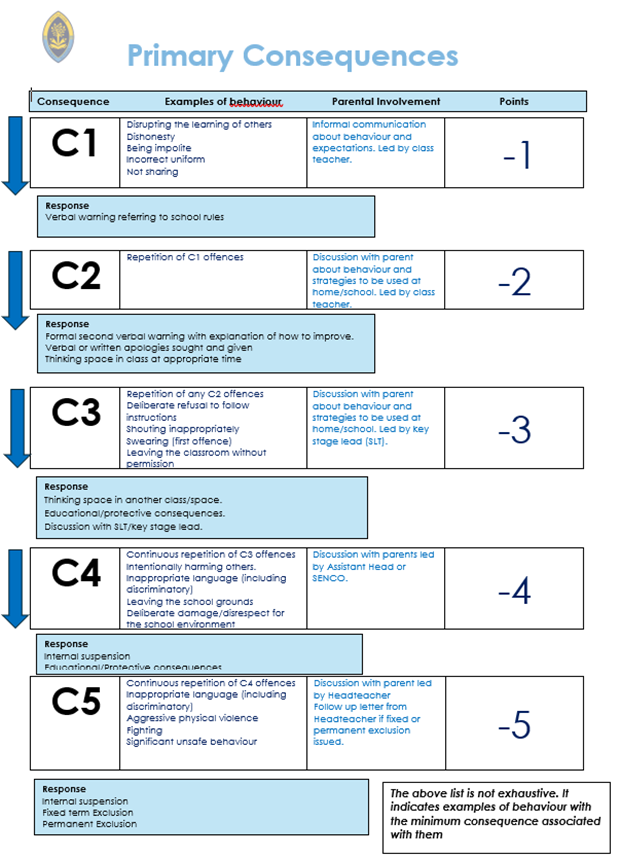Therapeutic Thinking - Behaviour
At Buntingford First School we have a therapeutic approach to behaviour which is underpinned by Hertfordshire's Therapeutic Thinking.
Buntingford First School is committed to creating an environment where exemplary behaviour is at the heart of productive learning. Everyone is expected to maintain the highest standards of personal conduct, to accept responsibility for their behaviour and encourage others to do the same. Our behaviour procedure guides staff to teach self-discipline not blind compliance. It echoes our core values of Resilience, Independence, Caring and Happiness with a heavy emphasis on respectful behaviour, a partnership approach to managing poor conduct and dynamic interventions that support staff and learners. We have a responsibility to help children enjoy their time learning with us, whilst keeping them safe.
We aim for children to develop positive and valued behaviours through:
• Creating a culture of exceptionally exemplary behaviour: for learning, for community, for life.
• Ensuring that all learners are treated fairly, shown respect and to promote successful relationships.
• Helping learners take control over their behaviour and be responsible for the consequences of it.
• Building a community through cohesion which value kindness, respect and safety.
• Ensuring that excellent behaviour is a minimum expectation for all.
At Buntingford First School we base our approach on giving every child what they need

Buntingford First School will:
• Promote valued behaviour (self -care, helpful, productive), self-discipline and respect for others
• Focus on a therapeutic approach to behaviour management;
• Provide an inclusive setting that promotes equality of opportunity so that all children are given what they need to help them to learn how to engage in valued behaviours;
• Understand that all staff need to know how to promote valued behaviour and manage detrimental behaviour, and to have an understanding of what behaviour might be communicating;
• Ensure that all staff understand how to focus on de-escalation and preventative strategies rather than focusing solely on reactive strategies. All staff are given Therapeutic Thinking training which is refreshed annually. We expect all staff to follow the therapeutic approach.
Responding to and promoting valued behaviour
Staff will encourage valued behaviour, including (as appropriate to the pupil and situation) by:
· Giving meaningful and specific verbal praise and positive feedback
· Allocating roles and responsibilities
· Communicating a child’s valued behaviours with parents/carers as appropriate
· Using stickers, certificates, messages home, achievement points, house points
· Building in “motivators” following the engagement of “adult directed activities” – through positive affirmations
· Acknowledging pupils in Celebration Assembly as well as class time
· Recognising care and respect of the learning environment
· Modelling and teaching children to self-regulate using resources that help pupils to stay calm and to understand their own emotions
Positive Achievements
Cause for Celebration
In each classroom, we at Buntingford First School we recognise that behaviour strategies may vary from class to class as each teacher is encouraged to respond to the needs and interests of their individual class.
If a teacher identifies that a pupil’s behaviour is above and beyond, the pupil can be commended through the use of Bromcom Achievement Points, Seesaw, certificates, visits to share work with other adults in school and celebration assembly. Teachers are encouraged to promote and reward positive behaviour at every given opportunity. We aim on encouraging a child’s intrinsic motivation alongside this.

Consequences
Protective Consequences
These are actions taken by staff to ensure that all children and adults feel safe in the school environment. These may include but are not limited to:
· Reduction in time spent with peers to reduce harm
· Increased staff-ratio and or redeployment of staff
· Limited access to outside space
· Escorted in social situations
· Differentiated teaching space or being taught outside of the classroom
· Behaviour support plan
· Adaption of access to school trips or extra-curricular activities
Educational consequences
These are consequences put in place by staff to help the child to learn, by rehearsing or teaching them about their actions, with the aim of internalising valued alternatives and avoiding repetition of detrimental behaviours. These may include, but are not limited to:
· Rehearsing or teaching about valued responses so the freedom can be returned
· Modelling valued behaviour through:
- Third party role play to understand other pupils’ /staff feelings
- Social stories
· Behaviour related research that shows how and why actions have impacted others
· Restorative meetings with the child and/or with them and their parent/carer
Supporting children to understand the effects of their behaviour through research or helping them to address a situation e.g. if a child has damaged property, they will be supported in the fixing process, gaining a true insight to the result of their behaviour choice.




